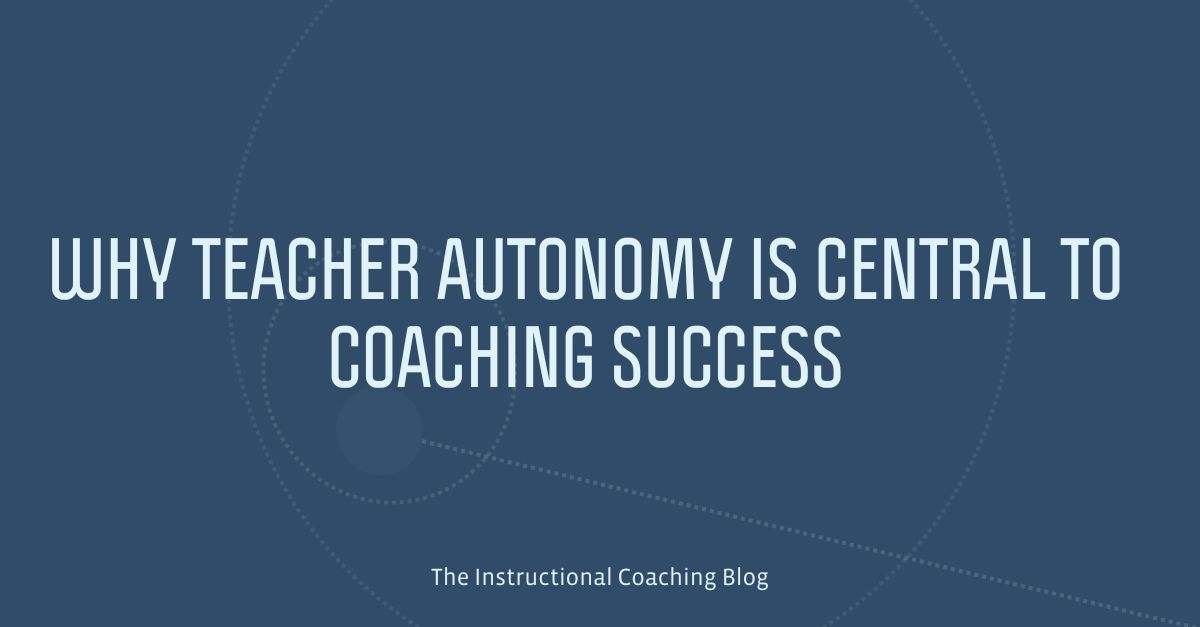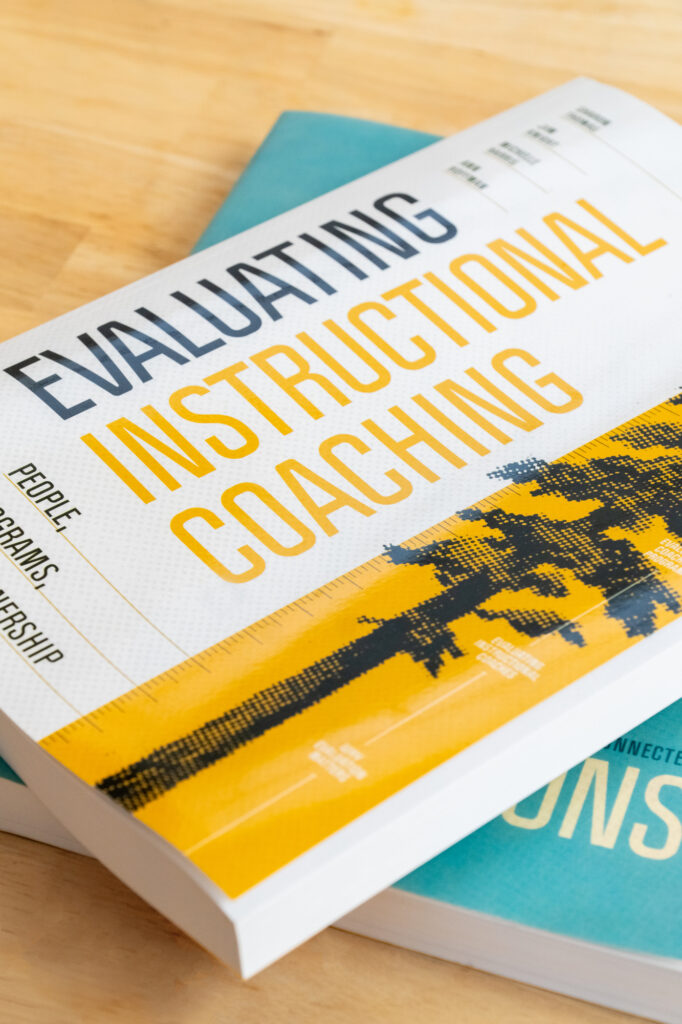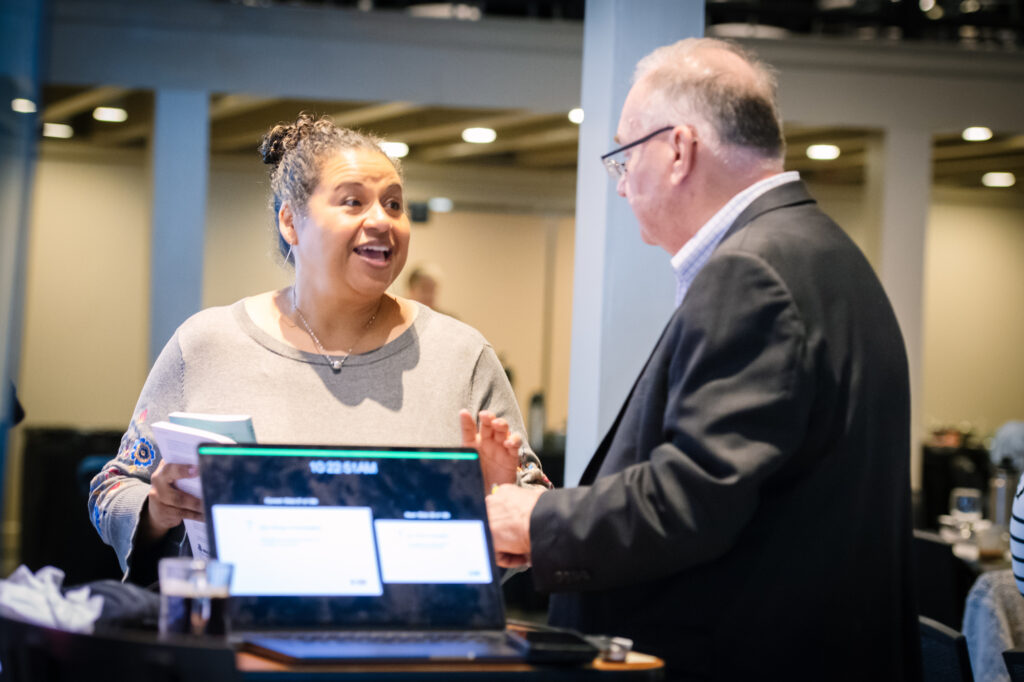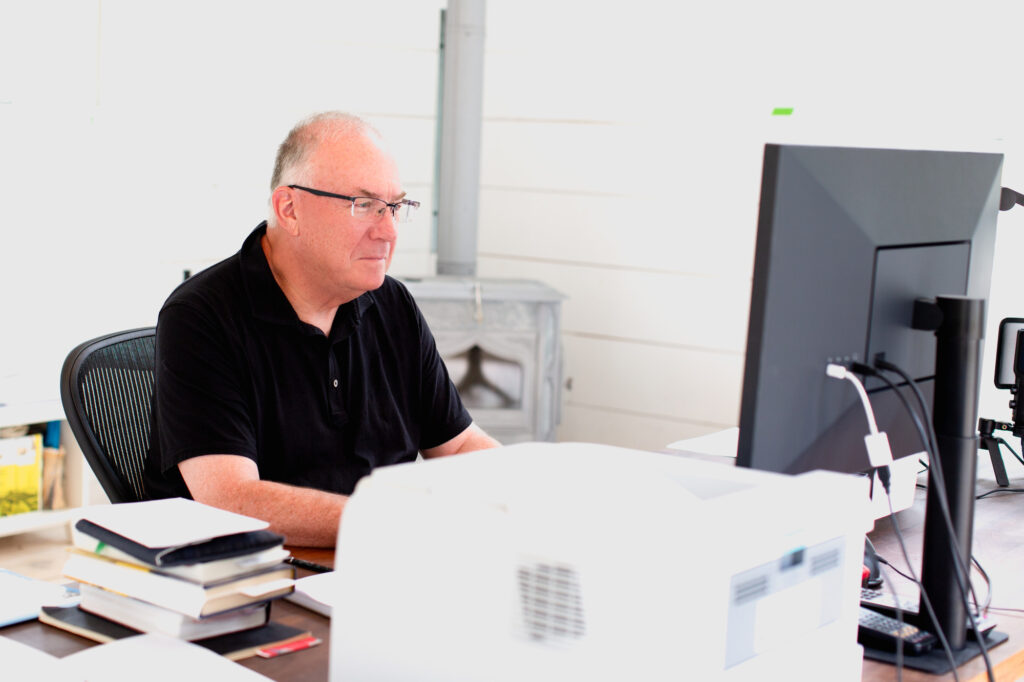Pressure to see results can lead coaches and administrators toward a directive approach – dictating exactly what teachers must do to improve – but research has shown giving teachers more control and choices in their practice is far more effective. Jim Knight recently wrote an article in Educational Leadership that highlights the importance of honoring teacher autonomy, and we’d like to share some key insights from his article.

Defining Teacher Autonomy and Fostering Self-Determination
Autonomy is not choosing to be unprofessional, bully students, be a toxic force on a team, or decide one no longer needs to improve. Instead, genuine autonomy is complex and may require coaches and leaders to reexamine accountability, feedback, and fidelity.
Top-down approaches to change are almost always doomed to fail because professionals are far less motivated when they have little autonomy.
According to Edward Deci and Richard Ryan’s Self-Determination Theory, people are more motivated when:
- they are competent at what they do
- they have a large measure of control over their lives
- they are engaged in positive relationships
The opposite is also true, and it has been proven that this dynamic applies to teachers. Research suggests that autonomy is decreasing in schools. Coaches must work to change this dynamic. We need to ensure that teachers have significant choices about what they do, including the right to say no to particular proposals.
Responsible Accountability
One obstacle to honoring teachers’ autonomy is that school leaders and policy makers often misunderstand the role of accountability. There can be two types of accountability:
Irresponsible Accountability
- Professional learning is driven by adherence to a mandated instructional program or initiative.
- Places all of the responsibility for decision making outside the teacher
Responsible Accountability
- Professional learning is driven by what educators themselves have determined will have an impact on their students’ learning
- Educators are accountable to the improvement process
- Entails a genuine individual commitment to learning and growth
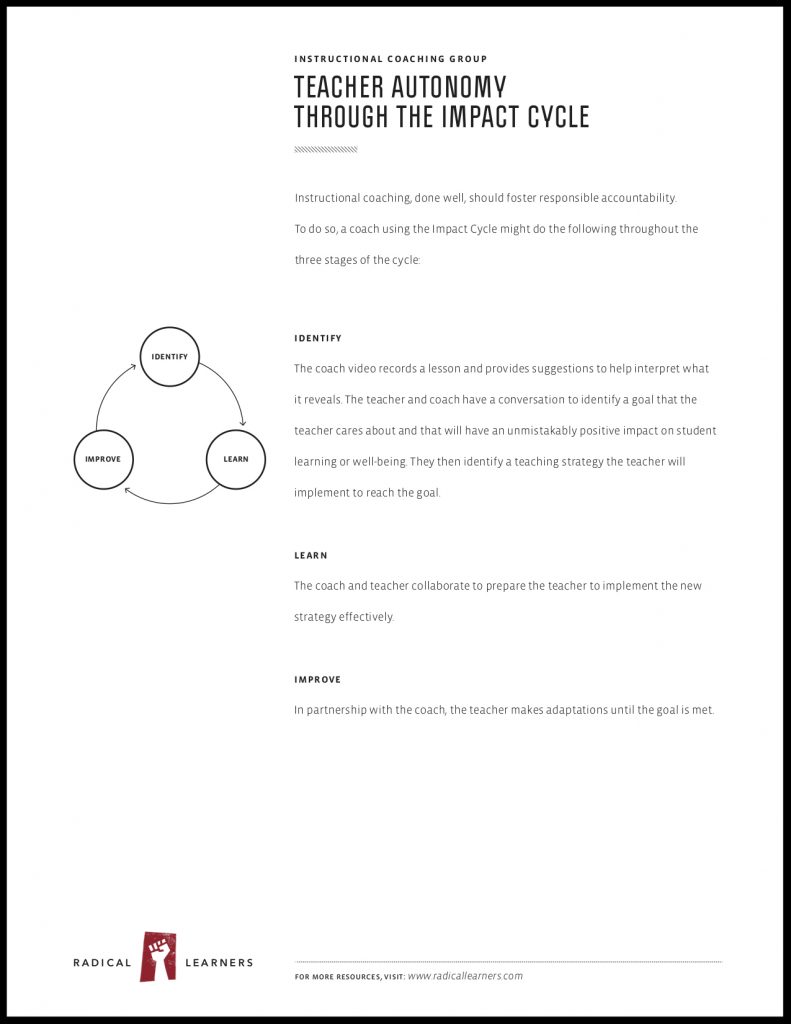
The Complexity of Teaching & Feedback as Dialogue
It is important that school leaders and coaches understand that teaching is a complex task that requires independent decision-making and self-directed growth, and not a technical challenge that can be reduced to a set of prescriptive steps. Teachers are required to constantly adapt, and one-size-fits-all solutions and external dictates will only restrict progress.
Many people’s understanding of feedback is completely backwards and can do more harm than good. Buckingham and Goodall (2019) have recently presented research showing that simply pointing out shortcomings or failures can shift people into survival mode and impair learning. Instead, there are three ways to offer support with instructional coaching:
- Coaches should structure conversations with teachers as dialogues between two equal partners
- Create a third point for the conversation that takes the focus off the coach and teacher and directs it toward whatever the two are exploring together, increasing the teacher’s role in the process.
- Coaches should share their thoughts non-judgmentally and with humility.
Fidelity
It is often thought that coaches need to make sure that teachers implement teaching practices exactly the way the research says they were meant to be implemented. However, student learning and well-being are what matter most, and too narrow a focus on fidelity can actually stand in the way of effective instruction.
Asking teachers to follow an exact script or procedure treats them more like assembly line workers than professionals, and a fidelity approach embodies the idea that teaching is a technical task when it is actually a complex adaptive task.
Rather than prescribing practices to teachers, instructional coaches need to present information in a way that allows the teacher to do the thinking. After presenting the research and practices, coaches might ask what the teacher thinks about the approach and if they will need to adapt it so it will work better for them and their students.
To ensure that coaching remains a goal-oriented process, coaches should engage teachers in reflective conversations about what they think might work in their classrooms.
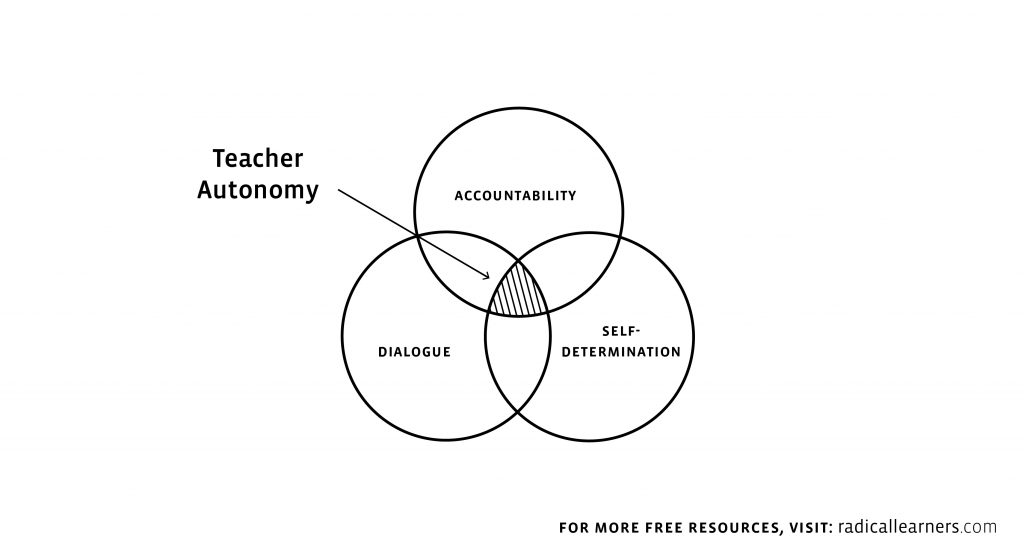
Though school leaders’ and administrators’ focus on top-down directives and fidelity often originates from a place of concern for student achievement and well-being, the best possibility for true student growth and improved learning comes from letting go of all-encompassing control in favor of empowering teachers to make real decisions based on their knowledge and expertise.
Read Jim Knight’s full article in Educational Leadership here.
